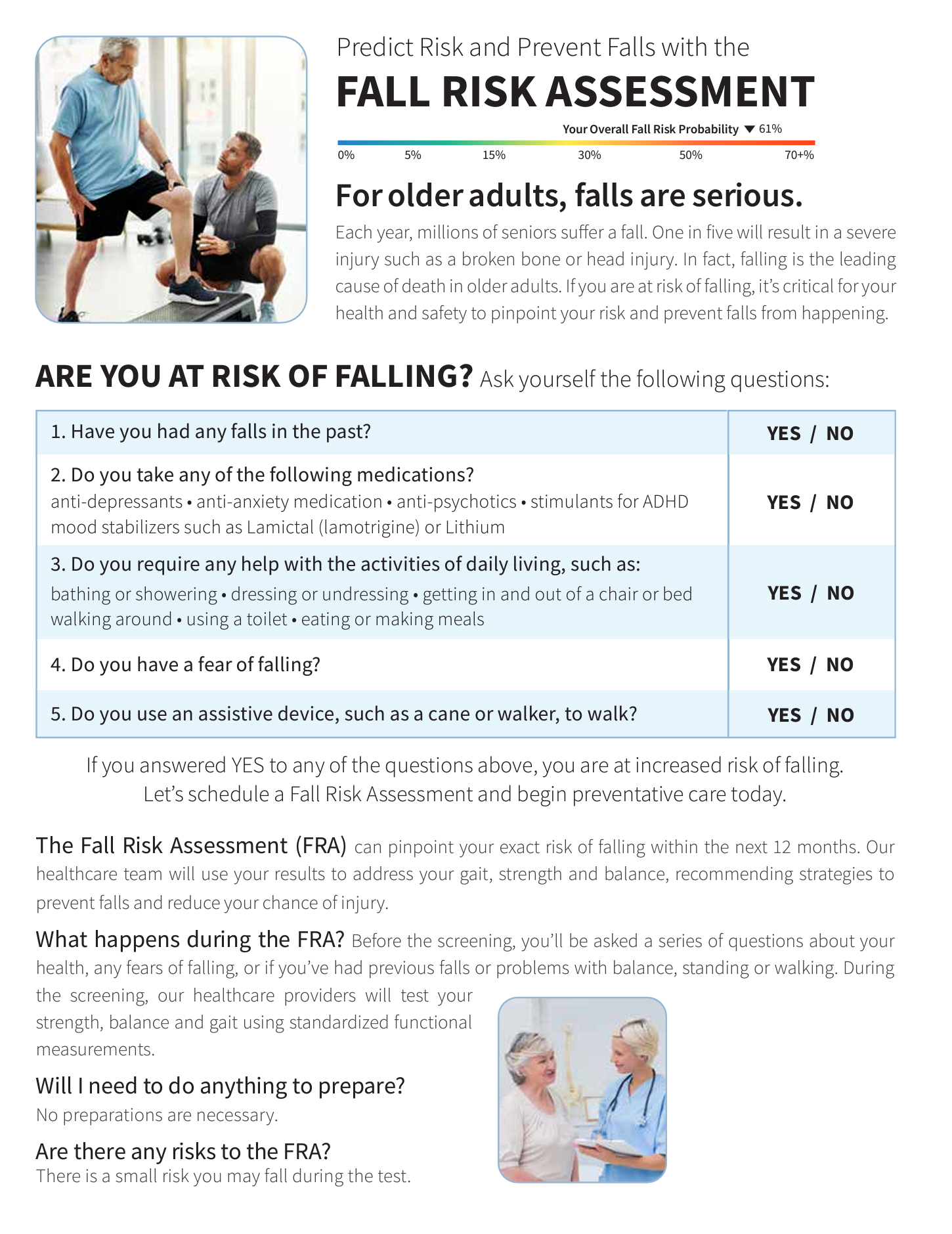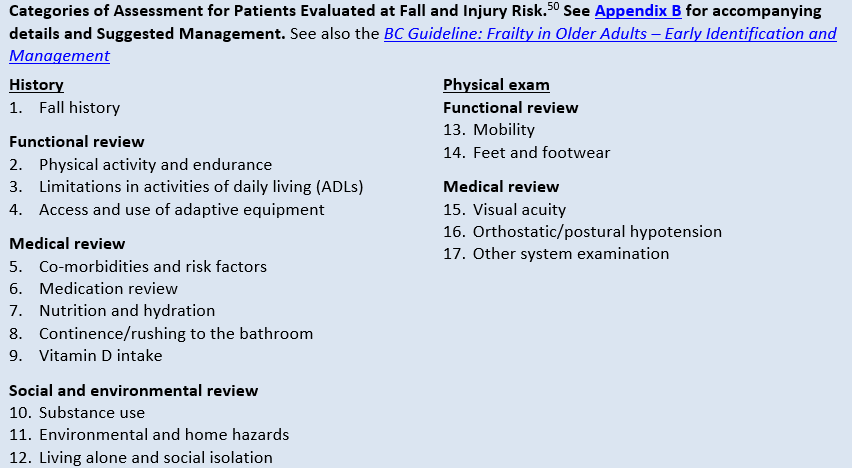The Ultimate Guide To Dementia Fall Risk
The Ultimate Guide To Dementia Fall Risk
Blog Article
The Best Strategy To Use For Dementia Fall Risk
Table of ContentsSome Known Details About Dementia Fall Risk Dementia Fall Risk Can Be Fun For Anyone5 Easy Facts About Dementia Fall Risk ShownOur Dementia Fall Risk DiariesDementia Fall Risk Can Be Fun For Anyone
Nevertheless, based upon indicators and symptoms, such as proof of head injury or a new focal neurologic deficiency, calculated tomography or MRI of the mind might be shown - Dementia Fall Risk. An assessment for reasons of syncope ought to be conducted just if there is strong suspicion, as when it comes to recurrent, inexplicable falls
Doctor use an autumn danger analysis to recognize your threat factors for falling and make practical referrals. Some people try to decrease their autumn danger by restricting their task or making every effort to be much more cautious. However these sympathetic actions aren't sufficient. A fall risk evaluation is very important since understanding which aspects boost your opportunities of dropping aids you: Decrease your threat of falling or injuring yourself.
Maximize your ability to move and be active. Preserve a healthy, independent life. All grownups 65 years and older must have a first fall threat screening. Your doctor may ask you whether you: Feeling unsteady when standing or strolling. Have dropped in the past year. Stress over dropping. If you address yes to any of these concerns, your doctor will advise an additional, a lot more comprehensive analysis.
Dementia Fall Risk Things To Know Before You Buy

Discover this comprehensive nursing treatment plan and monitoring guide to properly avoid danger for drops amongst people. Get necessary expertise concerning the nursing analysis, taking care of medical diagnosis, and objectives especially customized to individuals that are at danger for falls. A is defined as an occasion that causes an individual coming to relax accidentally on the ground or flooring or other lower level (WHO, 2021).
According to the Centers for Disease Control and Prevention anchor (CDC),, causing over 34,000 fatalities for that age team. Dropping is the second leading cause of death from unintentional injuries internationally. Fatality from falls is a serious and endemic problem among older individuals. It is estimated that fall fatality rates in the U.S

Annually, over 800,000 clients are hospitalized as a result of drops. Nurses play a significant role in stopping succumbs to their individuals via education and learning, check out this site assessing loss risk, developing safer atmospheres, and giving interventions in protecting against injuries from falls. Numerous risk aspects and problems contribute to drops, consisting of the following:. Aged 65 years and older; reduced arm or leg prosthesis; use of assistive tools such as walker, crane, and wheelchair; living alone.
Loss are due to numerous variables, and a holistic method to the private and atmosphere is vital. Expect a person is thought about at high danger for drops after the testing.
Dementia Fall Risk - An Overview
A needs making use of a verified device that researchers have actually analyzed to be useful in calling the causes of falls in an individual. The level of autumn danger can be identified using the analysis of innate and extrinsic elements.
People are more likely to fall once again if they have actually maintained one or more falls in the past six months. The older populace is at boosted risk of fall-related readmissions based on a research study determining the variables anticipating of repeat drops associated outcomes (Prabhakaran et al., 2020).
Furthermore, confusion and impaired judgment enhance the individual's chance of dropping. The ability of people to secure themselves from drops is affected by such elements as age and advancement. Older individuals with weak muscular tissues are much more most likely to fall than those who keep muscular tissue strength, versatility, and endurance. These changes include reduced aesthetic function, damaged shade perception, adjustment in center of mass, unsteady gait, decreased muscular tissue toughness, lowered endurance, modified depth perception, and postponed feedback and response times.
9 Easy Facts About Dementia Fall Risk Described
Less contrast level of sensitivity was rather connected with both boosted prices of falls and various other injuries, while decreased aesthetic skill was just related to raised autumn price (Wood et al., 2011). Sensory understanding of ecological stimuli click is paramount to security. Vision and listening to impairment restriction the individual's ability to view hazards in the surroundings.
Older grownups that have bad equilibrium or problem strolling are most likely to fall. These issues might be related to absence of workout or a neurological reason, joint inflammation, or other medical conditions and therapies. An important danger variable highlighted in a study is that adults with rheumatoid arthritis are at high danger of falls, including inflamed and tender reduced extremity joints, fatigue, and use psychotropic medicines (Stanmore et al., 2013).
Report this page